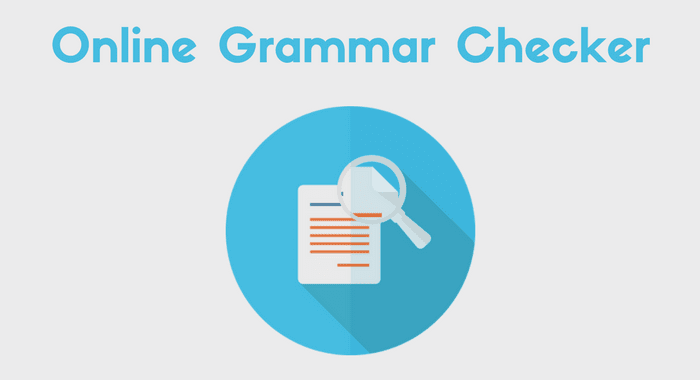In the vast landscape of online content, grammar serves as the foundation for effective communication. It’s not just about adhering to language rules; proper grammar significantly influences how content is perceived by both readers and search engines. In this article, we delve into the world of Grammar Checker Tools and their symbiotic relationship with Search Engine Optimization (SEO).
The Impact of Grammar on SEO
Imagine stumbling upon a website with poorly constructed sentences and grammatical errors. The immediate reaction? A loss of credibility. Search engines, being champions of user experience, recognize this too. Well-structured content not only engages readers but also aligns with the preferences of SEO algorithms if its correctly proofread by an online proofreader tool. The question then arises: How can we ensure impeccable grammar in our content?
Role of Grammar Checker Tools in SEO
Enter Grammar Checker Tools, the unsung heroes of content creation. These tools go beyond basic spell-check, offering insights into sentence structure, clarity, and overall readability. By utilizing these tools, content creators can not only produce grammatically sound content but also align it with SEO best practices.
Popular Grammar Checker Tools
Grammarly: Undoubtedly the frontrunner in the grammar checker realm, Grammarly provides a comprehensive suite of features, including real-time suggestions, tone adjustments, and plagiarism checks.
ProWritingAid: This tool stands out for its in-depth reports, covering aspects like overused words, sentence length, and grammar suggestions. An all-in-one package for content enhancement.
Hemingway Editor: Known for its simplicity, Hemingway Editor focuses on readability and conciseness, making complex sentences more approachable.
Other noteworthy tools: While Grammarly and ProWritingAid lead the pack, tools like Ginger, WhiteSmoke, and LanguageTool offer unique features catering to different writing styles and preferences.
User Experience and SEO
User experience is paramount in the digital realm. A well-edited, grammatically correct piece of content ensures that readers stay engaged, reducing bounce rates and signaling to search engines that the content is valuable.
Common SEO Mistakes Related to Grammar
Even the most seasoned content creators can fall prey to common grammatical errors that hinder SEO performance. Whether it’s misused keywords, awkward phrasing, or inconsistent writing styles, these mistakes can negatively impact search rankings. Let’s delve into some examples and practical solutions to rectify them.
Keyword Stuffing: While incorporating keywords is essential for SEO, stuffing them into sentences can make content awkward and hard to read. Use keywords naturally and contextually.
Solution: Conduct thorough keyword research and integrate them seamlessly into your content. Ensure that the text flows naturally and doesn’t compromise readability.
Sentence Structure Issues: Complex sentences can confuse both readers and search engines. Clarity in communication is key for SEO success.
Solution: Break down complex sentences into simpler ones. Use punctuation effectively to enhance readability. Grammar checker tools like Hemingway Editor can assist in this regard.
Inconsistent Writing Style: Consistency in writing style establishes a brand voice and aids SEO. Inconsistencies can lead to a disjointed user experience.
Solution: Develop a style guide for your content and stick to it. Grammar checker tools can help identify inconsistencies and maintain a cohesive writing style.
The Evolving Landscape of SEO
SEO algorithms are in a perpetual state of evolution. What worked yesterday might not work tomorrow. Grammar checker tools, however, exhibit a remarkable ability to adapt to these changes, ensuring that content remains optimized for search engines.
Content Creation Best Practices
The key lies in striking a balance between the automation offered by grammar checker tools and the human touch. While these tools are invaluable, human editing adds a layer of nuance that can elevate content quality. Let’s explore some best practices for effective content creation.
Drafting Phase: Use grammar checker tools during the drafting phase to catch initial errors and enhance readability.
Human Editing: After using grammar checker tools, engage in thorough human editing to address nuanced issues and ensure the content aligns with the brand’s voice.
Consistency Checks: Regularly check for consistency in style, tone, and formatting. Grammar checker tools can assist but human oversight is crucial.
Case Studies
Several businesses have experienced tangible benefits after integrating grammar checker tools into their content creation workflows. From increased organic traffic to improved conversion rates, these case studies underscore the impact of polished content on SEO success.
Case Study 1: E-commerce Success
An e-commerce site implemented Grammarly across its product descriptions and blog content. The result? A 20% increase in organic traffic within six months, attributed to improved content quality and search engine visibility.
Case Study 2: Blogging Boost
A popular blog switched to ProWritingAid for its editing needs. The tool’s detailed reports helped the bloggers fine-tune their writing style, leading to a 15% increase in user engagement and a significant decrease in bounce rates.
Future Trends in Grammar Checker Tools and SEO
As technology advances, so do the capabilities of grammar checker tools. Predictions indicate a future where these tools seamlessly integrate with content creation platforms, providing real-time suggestions as content is being written. Let’s explore some anticipated trends.
AI-Powered Suggestions: The integration of advanced artificial intelligence will enable more accurate and context-aware suggestions, elevating the editing process.
Customized Industry Solutions: Grammar checker tools will likely evolve to offer industry-specific solutions, catering to the unique needs and terminology of different sectors.
Addressing Skepticism
Despite their efficacy, some remain skeptical about relying solely on grammar checker tools for SEO. It’s crucial to address concerns and highlight that these tools are valuable aids rather than replacements for human editing. Let’s delve into some common concerns and provide reassurances.
Loss of Creativity: Some worry that relying on tools might stifle creativity. However, these tools are designed to enhance, not replace, creativity by refining the technical aspects of writing.
Overdependence on Automation: Automation is a boon, but overdependence can be a pitfall. Emphasize the collaborative role of grammar checker tools and human editors for optimal results.
Beyond Grammar: Additional SEO Strategies
While grammar is a fundamental aspect of SEO, it’s not the sole determinant of success. A holistic approach that includes other SEO strategies like keyword optimization, quality backlinks, and mobile-friendliness is essential for comprehensive optimization. Let’s delve deeper into these strategies.
Keyword Optimization: Conduct thorough keyword research and strategically incorporate keywords into your content. Balance is key to avoid keyword stuffing.
Quality Backlinks: Build authoritative backlinks to your content. High-quality backlinks signal to search engines that your content is trustworthy and valuable.
Mobile-Friendly Content: With the increasing use of mobile devices, ensure that your content is optimized for mobile viewing. Mobile-friendly content is favored by search engines.
Real-time Editing and SEO
The demand for immediacy in content creation has given rise to tools offering real-time editing capabilities. This not only expedites the editing process but also ensures that content is SEO-ready upon publication. Let’s explore the significance of real-time editing.
Instant Feedback: Real-time editing tools provide instant feedback, allowing creators to make on-the-fly adjustments for better SEO optimization.
Time Efficiency: Content creators can save valuable time by addressing potential issues as they arise, streamlining the editing process from start to finish.
Industry Experts’ Perspectives
To gain deeper insights, we reached out to industry experts in SEO and content creation. Their unanimous agreement on the pivotal role of grammar in SEO further solidifies the importance of grammar checker tools in the digital landscape. Let’s hear from some experts.
Expert Insight 1:
“In the ever-evolving landscape of SEO, content quality is non-negotiable. Grammar checker tools have become indispensable for maintaining high standards, and their role will only grow in the future.” – SEO Specialist, Amanda Reed
Expert Insight 2:
“While tools are fantastic for catching technical errors, the human touch is irreplaceable. A collaborative approach, with tools complementing human editing, ensures the best results.” – Content Strategist, Alex Turner
Conclusion
In the ever-evolving digital landscape, where content is king, grammar checker tools emerge as knights in shining armor. They not only enhance the quality of content but also play a crucial role in optimizing it for search engines. As we navigate the intricate realms of SEO, embracing these tools proves to be a winning combination for online success.
FAQs
Are grammar checker tools suitable for all types of content?
Absolutely! Whether it’s blog posts, articles, or marketing copy, grammar checker tools are versatile and applicable across various content types.
Can grammar checker tools replace human editors entirely?
While they are powerful aids, human editors bring a nuanced understanding that complements the automation of grammar checker tools. The ideal approach is a collaborative effort.
Do grammar checker tools consider industry-specific terminology?
Many advanced grammar checker tools are designed to recognize and adapt to industry-specific jargon, providing tailored suggestions.
How often should content creators use grammar checker tools?
Regular use is recommended, especially during the drafting and editing phases. It ensures that the final content is polished and optimized for SEO.
Do grammar checker tools work with languages other than English?
Yes, many grammar checker tools support multiple languages, making them valuable for global content creators.








